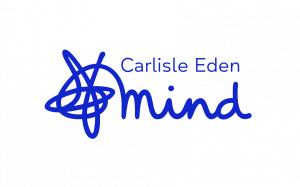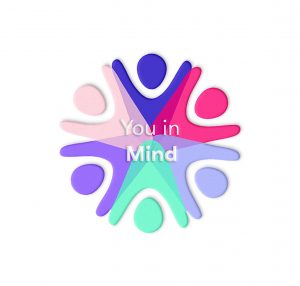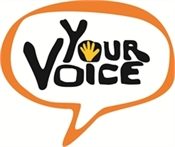10th October is World Mental Health Day. The theme is universal Mental Health human rights.
Human rights need not cost our society, a penny. Here are three: The right to be listened to when you are in a Mental Health crisis. The right for you to be positively judged by everyone else. The right to be kindly treated by your family, friends and work colleagues. If these three rights are practiced, at home, work and with your friends, recovery will be earlier, faster, importantly, less risk of damaging future relapses.
I had an enjoyable evening at the Old Fire station, Carlisle, recently. It was not a live band or a comedy act but a presentation by Tom Nicholson on Attention Deficit Hyperactivity Disorder. Tom mesmerised those diagnosed, parents and others thinking they should be diagnosed. You have rights as a ADHD’er. I looked around the room. Here is an opportunity for everyone to connect together: They did but it was just only for one night. Driving back, I thought, have we got it wrong when it comes to Mental Health human rights ?
If there is an immediate risk of you causing harm to yourself, the law can take away your citizen right to roam free. The police or the local NHS “sectioning team” have powers to forcibly remove you from a public place or your home, to a psychiatric hospital. That has been the universal emergency service for Mental Health for over 100 years. The right to be protected from harm.
To be NHS treated for any poor mental health signs, at the time they appear, is not a human right. The NHS will only respond to a diagnosable Mental Health condition. If you seek NHS treatment but there is no guarantee of removing the cause. If your condition has been triggered by the stress of an abusive relationship, no medical treatment can turn that relationship back into a healthy mutually caring one. The social solution is to leave permanently.
I walk down the street. There is a deep hole in the pavement I fall in. I am lost. I am hopeless. It takes forever to find a way out. I walk down the same street. There is a deep hole in the pavement. I pretend I don’t see it. I fall in again. I can’t believe I’m in the same place. But it isn’t my fault. It still takes a long time to get out.
Faded from public memory, is the 1971 London Paddington Psychiatric Day Hospital strike, when it was threatened with closure. It was a therapeutic community, jointly run between staff and patients. Today it would be called “co-production”. Patents were actively involved in opposing the closure. The strike was successful. A small patient group enthused by their success, writing the now long forgotten “fish manifesto”. On the front page, was the symbolic metaphor: “fish caught on the hook, struggling on the end of a line of a fisherman”. This was the spark that ignited the birth of the modern Mental Health survivor movement and the formation of the Mental Patient Union (MPU), led by Eric Erwin. The fish manifesto was modified. In its place, was the ambition to establish a charter of seven Mental Health citizen rights. Over the following decades, other user led networks played their part, including Survivors Speak Out and Mad Pride. Five major human rights themes emerged in the new Mental Health social movement of the 1980’s and 90’s.
- The opposition to state coercion: “people with mental health problems are segregated forcibly from society”.
- The opposition to NHS compulsory treatment and detention. “What is the difference between solitary confinement in prison and `seclusion’ in mental health services”?
- The opposition to psychiatric diagnosis: “Re-frame my Mental Health within my social life story, I am not just a broken biological brain”.
- The demand for greater treatment choice: “Give me talking therapy, not just medication”.
- The demand for greater citizenship: “I am entitled to Mental Health human rights”.
Today, Mental Health treatment is less dominated by biological interventions. NHS patients are now clinically supported in their own homes. But your home is not the only place to recover: your workplace is.
Mental Health asylums were first built not just to protect people from the risk of madness, but to remove them from the poor law accommodation. They were judged to be mentally unfit: unsuitable for work. Access to work is a human right. This was a time when society was transitioning from a rural to an industrial economy. Society needed medically fit people in the new workplace. From Enoch Powell’s Mind annual conference “water tower” speech in 1961, to the 1980’s community care closure of psychiatric hospitals, was removal of inpatient beds. So what was going to replace them ?
I snapped my tibia leg bone in half 4 months ago, when I was gardening. The ambulance arrived within an hour, I was X rayed, and admitted for surgery that day, I was only formally discharged from the hospital when I could walk again. With the help of a metal plate, my bones have grafted together. I can now walk unaided, drive and return back to working at Mind. My bone treatment was a human right: in the UK: The NHS Constitution for England (17 August 2023) says “You have the right to access NHS services. You have the right to receive treatment that meets your needs and reflects your preferences”. If my spirits had been broken, do I have that same fundamental right ? I can dial 999, but an ambulance would not come, A/E would not be appropriate.
For the last 20 years, a new Mental Health crisis service has evolved as a mandatory service: the Crisis Resolution Home Treatment (CRHT). But is not an emergency service like our NHS Accident and Emergency (A/E) hospital service. Anyone has the right to turn up at A/E, at any time. You are legally entitled to receive immediate treatment. If you need an inpatient bed, you have a right to be admitted, no matter what the bed vacancy is. There is no equivalent service for Mental Health. You cannot walk into the CRHT service, be seen by a specialist Mental Health professional and automatically supported as long as it takes to get your life back, just like when my bone broke.
The CRHT was never intended to be a universal right to anyone who feels they are experiencing a Mental Health crisis and be treated at home. It was intended to replace those lost beds for those generations who had used those beds. Specifically for those who were already in the secondary Mental Health NHS care system. The power to admit to a bed was in the hands of the Consultant Psychiatrist, now the CRHT decides who gets admitted into the four Cumbria inpatient units.
But hold on, what about your GP? That’s a human right to see your GP and get treatment that day ? Two years ago, my GP practice stopped offering drop in morning surgery. I lost the right to go unannounced to my GP practice, any morning, guaranteed to see my GP. I have to phone and book. It usually means a wait of at least a week. I can only ring my GP between 9am and 5pm, weekdays. The GP has never been a specialist Mental Health service. The clue is in the name “General Practitioner”. It is up to each GP, how deeply they want to get involved with all of the many Mental Health conditions that are presented to them, every year. Companies rely on GPs to give fit notes that explain the Mental Health condition of their employer when they are sick.
What about 999: the police ? There is a legal entitlement for that the call to be answered within seconds by the 999 call handler. What is not a legal right is an automatic duty for the police to respond by immediately driving round to physically see you, listen to what’s happening and have the responsibility to ensure you get to see a Mental Health professional that night. There is another “stand by” service: it’s your Line Manager. “just text me, if you need help”.
Can national Mental Health campaigns fundamentally change public attitudes ? Looking back over the last 200 years, I believe that big changes in Mental Health human rights, can only happen when the majority of you: the public, change their opinion. What ignites a major attitude change is simply generational.
I am a baby boomer. I remember working as a staff nurse at Springfield Day Hospital in 1980. Its where I leaned what happened at Paddington Day Hospital, some years earlier. The new generations: from Millennials to Generation Z, have different beliefs around identity: race, sexuality, gender and Mental Health, unlike my generation. Those born between 2010 to 2024 are the Alpha generation, they are going to be even more informed about Mental Health. These three generations are the future workforce.
The new generations believe in the power of wellbeing. Wellbeing is something you can control, not always, but a lot. Something you personally take responsibility for: be physically active, eat less or no meat, drink less or not at all. They also believe that to recover from signs of poor mental health means discovering the “right fit” coping strategies, practicing them until the skill is there. The search power of google for Mental Health knowledge or learning from YouTube lived experience and social media mental health blogs, has accelerated attitude change amongst the new generations. As a psychiatric student nurse in the 1970’s, I was told by my nurse tutors “you are not entitled to have access to specialist Mental Health knowledge: that is restricted to the hospital doctors”. Now, it is “one click away” or on the shelves of your local library.
You cannot force your family or friends to change their attitudes: that’s another human right: the right to free speech and freedom of thought. But employers can nudge, educate or indeed when appropriate, impose a positive mental health attitude, at work. More employers want their workforce to hold positive Mental Health attitudes. When the majority of staff do, that’s the human right “tipping point”. When a series of small changes becomes significant enough to cause a larger, more important Mental Health attitude change in the workplace.
Are work colleagues are the most important human right change? People at work will know before anyone else, those tiny subtle changes in your Mental Health. If your work colleagues come to you, saying, “you will get through this, we are all behind you”, then it is much more likely to happen. You are now relying on those whom you work with, to get better. To remain better, you help others who are struggling. A virtuous circle: “a recurring cycle of help”, the result of each one, increasing the beneficial effect of the next. “People helping each other” was the human right spark in the survivor movement of the 1970’s.
Is not the workplace, the new Mental Health service ? In the UK, the 1974 Health and Safety Act, made it a statutory requirement to protect employees from physical harm at work. Should it be a mandatory responsibility for a workplace to have “mentally healthy safe systems at work”: a psychologically safe place ? Should we have as a “basic human right” for every employee, to be trained on supporting anyone with poor Mental Health at work? I would say that: I am a Mental Health trainer specialist in the workplace. What about you ?
There is a deep hole in the pavement, I walk around it. I walk down another street that takes me to the place I work.
Written By Chris Graham – Senior Trainer CE Mind
*views employees own

















